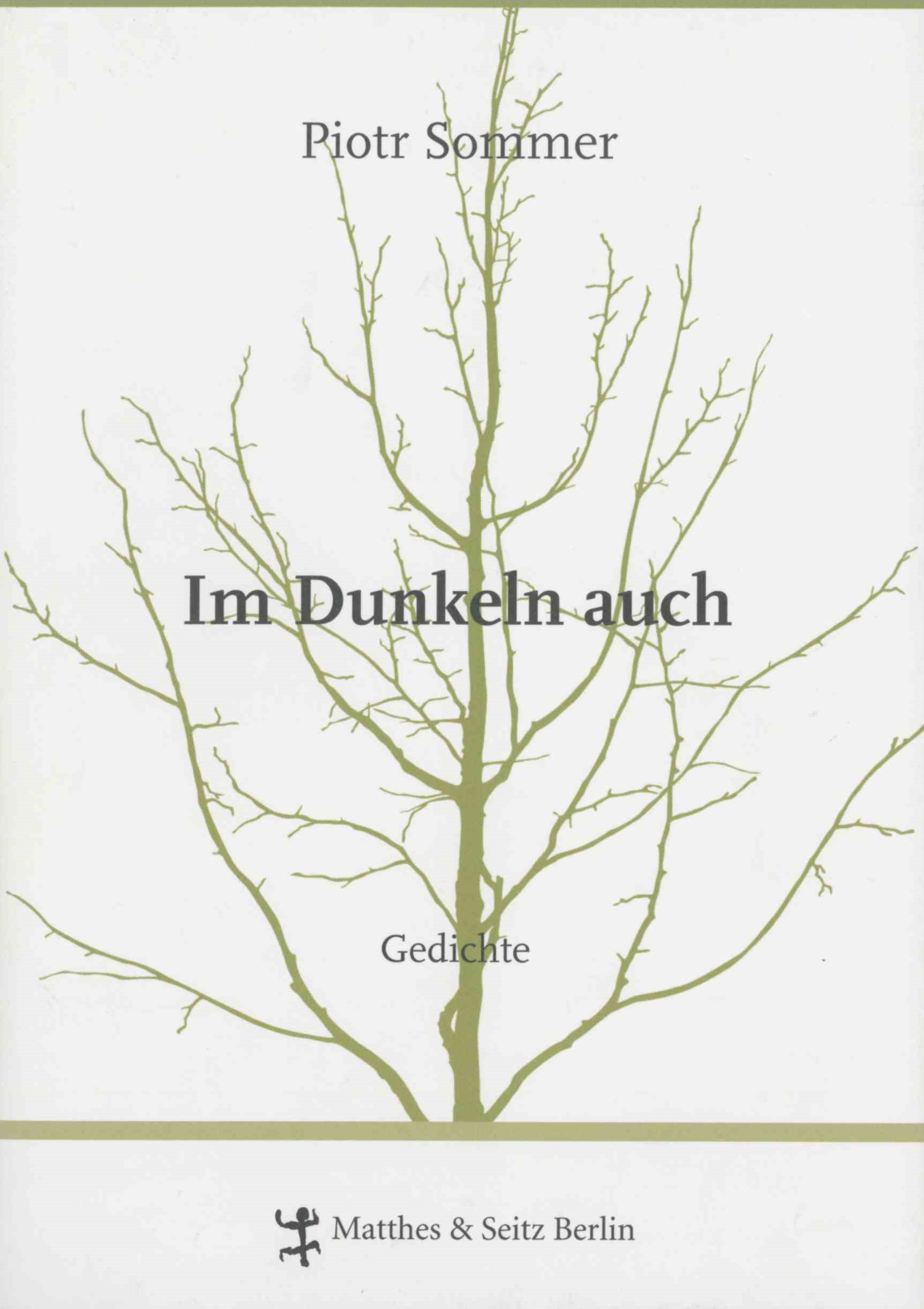Poland, Literature, 2007
Piotr
Sommer
Piotr Sommer, born in Wałbrzych / Silesia in 1948, is one of the most important Polish lyricists of the younger generation – following Zbigniew Herbert, Tadeusz Różewicz or Wisława Szymborska – and lives as a poet, essayist, translator from English, and chief editor of the acclaimed literary magazine “Literatura na Świecie” (Literatur in the World) in Sulejówek near Warsaw.
Since 1977, Piotr Sommer has published eight volumes of poetry (most recently “Piosenka pasterska”, Song of the Herdsman, 1999) and two volumes of essays (most recently “Po stykach”, 2005) as well as translations into Polish of works by Frank O’Hara, Charles Reznikoff, John Ashbery, Robert Lowell, Allen Ginsberg and Seamus Heaney, for example. As well as books, his work has included the famous “Literatura na Świecie” magazine; in the year 1986, Piotr Sommer presented New York lyricists in Polish translation and thus gave decisive impulses to the poet generation of “young Barbarians”, whose debut in Poland came at the end of the 80s. Since the eighties, Piotr Sommer has taught regularly at American and British universities. He has been awarded several important prizes for literature and translation. A volume of Piotr Sommer’s selected work appeared in German, entitled “Ein freier Tag im April”, in the Edition Korrespondenzen in 2002; for the literary magazine “die horen”, Piotr Sommer presented thirteen Polish poets under the title “Alles ist einmalig …” in the issue 4 / 2004.
Poems that appear spick and span in order to bask in the sun of publicity make Piotr Sommer sceptical. The same applies to poems that adopt a solemn tone, with a raised finger of warning – hidden only in the writer’s pocket and always at the ready. And in Poland, there have already been too many political poems, equipped with an official stamp and the right documents. Piotr Sommer is in favour of the concrete in poetry: “everyday poetry” is his “antidote to global attitudes and temptations”. And he is not concerned with “how often Oolong tea, Krucza Street, Broadway, or his fellow citizen Malicki from Świder near Warsaw near Warsaw appear in a poem, but with a specific flavour to the language.” And that is unmistakable in Piotr Sommer’s work. His poems remain close to the people and objects that populate our everyday lives, to the route from bus stop to house, to the tree in Powązki cemetery, to the old dog that hears the lift coming, or to the little boy who does not know yet that he has a hare-lip; his poems listen for the ironies, “that no one notices, they are so short in duration / and with no impact”, the “trivial points / that confirm metaphysics with absurd details”, the “free days, if one will, / Fridays in April” and the “mnemotechnology of days”; they take a look at quite everyday occurrences and observations and make our perception permeable to the numinous space that exists directly beside the whirring, fluid conglomeration of signs, sounds and memories. For the whole of man is in this, “this intermediate meaning” – and in search of the “intermediate meaning” lies the unmistakable flavour of Piotr Sommer’s language in his poems. It is mocking and ironic, with a wink of the eye, casual in its tone, permeated by a sometimes Asian-seeming simplicity and poetry – it is probably no coincidence that Piotr Sommer, alongside Frank O’Hara, views the 8th century Chinese lyricist Wang Wei as an important point of reference – oscillating between a scarcely perceptible, subliminal disquiet and bright light.
“I believe that poetry, in principle, emerges from sounds. Words standing beside one another or somewhat further away have a specific sound and – intoned in very different ways – they result in a music, which cannot be accommodated in the available units of syntax. Somehow, a linguistic melody is always richer than the sentence pattern in which it can be enclosed. Sometimes, when one hears the beginning of such a melody, the sentence templates suddenly become subordinate, they fit in with the melody and the listener also adapts himself to it – as if he had forgotten the syntax and his duties towards it. And by forgetting the syntax, he encourages it, makes it more flexible, he demonstrates to it that it is capable of accommodating more than it perhaps believed itself. (…) For poetry is music written to messages and to objects.” (Piotr Sommer, in answer to the question “What do you understand by poetry …?”)
Publications in German Translation|
Ein freier Tag im April. Gedichte. Translated from the Polish by Doreen Daume. With an essay by Michael Krüger. Edition Korrespondenzen, Vienna|2002|&&&
Publications in English Translation|
Continued (Wesleyan Poetry). Wesleyan University Press|2005|
Things to Translate, and Other Poems. Bloodaxe Books Ltd|1991|
Two Anecdotes about East European Tribes (with a Few References to Latin)|1994|&&&
As Editor|Contemporary Polish Poetry. Bloodaxe Books Ltd|1996
-

Im Dunkeln auch
Piotr Sommer2010, Book (Spurensicherung Bd. 21)

Poems, bilingual.
Translated from Polish by Renate Schmidgall.
With an afterword by Jakub Ekier (from the Polish by Berhard Hartmann).
Order: info@matthes-seitz-berlin.de


